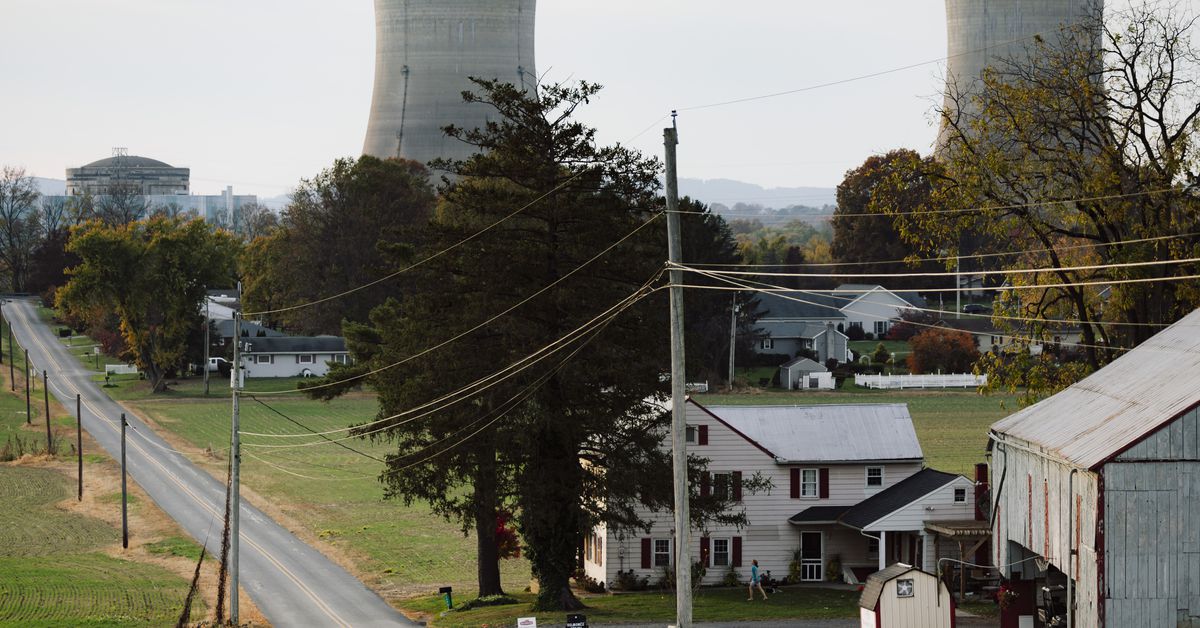The General Services Administration (GSA), which manages government buildings, has announced a major nuclear energy contract. This announcement comes on the heels of several big tech companies making a flurry of nuclear energy deals last year.
The 10-Year, $840 Million Contract
The GSA awarded the contract to Constellation, which operates the nation’s largest nuclear fleet, and recently announced an agreement with Microsoft to restart a nuclear reactor at Three Mile Island. Nuclear energy makes up a significant portion of the GSA deal, about 4 million megawatt-hours, according to Constellation spokesperson Paul Adams.
The Significance of the Contract
The 10-year contract is worth $840 million and covers 10 million megawatt-hours of electricity, which is equivalent to what’s needed for more than 1 million homes annually. This contract is a big boon to the nuclear industry as it provides a significant source of revenue for Constellation.
The Increasing Demand for Nuclear Energy
Silicon Valley is increasingly turning to nuclear energy to satiate rising electricity demand from AI data centers. The federal government is the nation’s single largest energy consumer, making this contract a crucial step in supporting the nuclear industry.
"We’re seeing a surge in interest in nuclear energy from corporate and government buyers," said Joe Dominguez, Constellation president and CEO. "This agreement is another powerful example of how things have changed."
Constellation’s Commitment to Nuclear Energy
Constellation generates 10 percent of the nation’s carbon pollution-free energy. A majority of its output is nuclear energy, but it also produces hydro, wind, and solar power. The company has set a goal of reaching 100 percent carbon-free electricity by 2040 compared to close to 90 percent today.
The Contract’s Impact on the Federal Government
The contract will allow Constellation to extend licenses for existing nuclear power plants as well as "invest in new equipment and technology" that should result in 135 megawatts of additional capacity. The GSA agreed to purchase 2.4 million megawatt-hours of electricity from that added capacity over 10 years.
External Agencies Involved
The contract extends to 13 other agencies, including the departments of Veterans Affairs and Transportation as well as the Federal Bureau of Prisons, the National Park Service, the Social Security Administration, and the US Mint.
Locking in Affordable Prices
The GSA is framing the contract as a way to lock in more affordable prices as data centers drive up electricity demand and increase competition for limited clean energy sources:
"In the face of uncertainty over future electricity prices and increasing electricity demand from data centers and AI facilities, for instance, this contract provides federal agencies with budgetary stability and protections from future price increases by keeping their electricity costs fixed for 10 years," said GSA administrator Robin Carnahan.
Industry Trends
Google, Meta, Amazon, and Microsoft have all inked splashy nuclear energy deals over the past year. In September of last year, Microsoft and Constellation announced a plan to restart a shuttered reactor at Three Mile Island in Pennsylvania, the site of the worst nuclear energy accident in US history.
The Biden Administration’s Support for Nuclear Energy
The Biden administration has made nuclear energy a key part of its plan to transition the US away from fossil fuels to energy sources that don’t cause climate change. Last October, the Department of Energy announced a $1.52 billion loan to help restart a retired nuclear generating station in Covert Township, Michigan.
Conclusion
This contract is a significant step forward for the nuclear industry and demonstrates the increasing interest in nuclear energy from corporate and government buyers. As the demand for clean energy continues to rise, this contract will provide a reliable source of electricity for federal agencies while supporting the domestic nuclear industry.
The Future of Nuclear Energy
With the growing demand for clean energy and the increasing importance of meeting the nation’s electricity needs, nuclear energy is poised to play an increasingly significant role in the US energy landscape. As companies like Constellation continue to invest in new equipment and technology, the benefits of nuclear energy will only continue to grow.
External Agencies Involved
The contract extends to 13 other agencies, including:
- The Department of Veterans Affairs
- The Department of Transportation
- The Federal Bureau of Prisons
- The National Park Service
- The Social Security Administration
- The US Mint
These agencies will benefit from the reliable and affordable energy provided by Constellation’s nuclear power plants.
Industry Trends
The nuclear industry is experiencing a resurgence in interest, with several big tech companies making significant investments in nuclear energy. Google, Meta, Amazon, and Microsoft have all inked splashy nuclear energy deals over the past year.
The Biden Administration’s Support for Nuclear Energy
The Biden administration has made nuclear energy a key part of its plan to transition the US away from fossil fuels to energy sources that don’t cause climate change. Last October, the Department of Energy announced a $1.52 billion loan to help restart a retired nuclear generating station in Covert Township, Michigan.
Conclusion
This contract is a significant step forward for the nuclear industry and demonstrates the increasing interest in nuclear energy from corporate and government buyers. As the demand for clean energy continues to rise, this contract will provide a reliable source of electricity for federal agencies while supporting the domestic nuclear industry.
The Future of Nuclear Energy
With the growing demand for clean energy and the increasing importance of meeting the nation’s electricity needs, nuclear energy is poised to play an increasingly significant role in the US energy landscape. As companies like Constellation continue to invest in new equipment and technology, the benefits of nuclear energy will only continue to grow.






